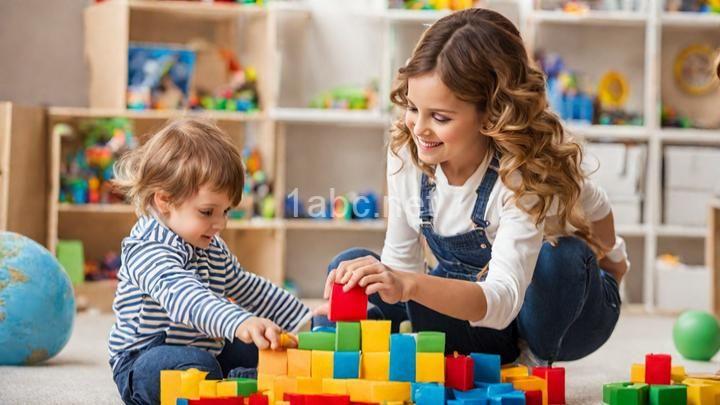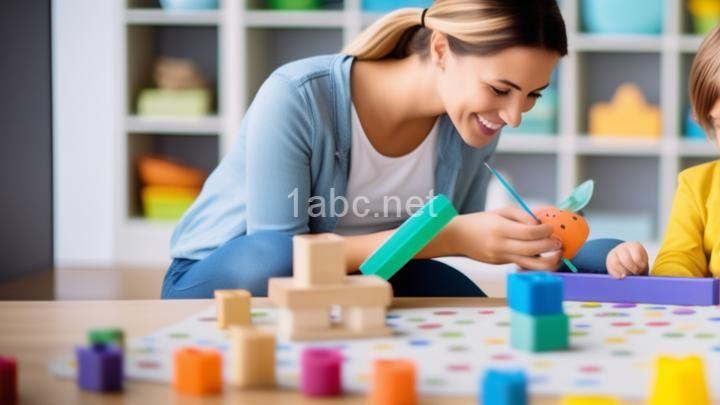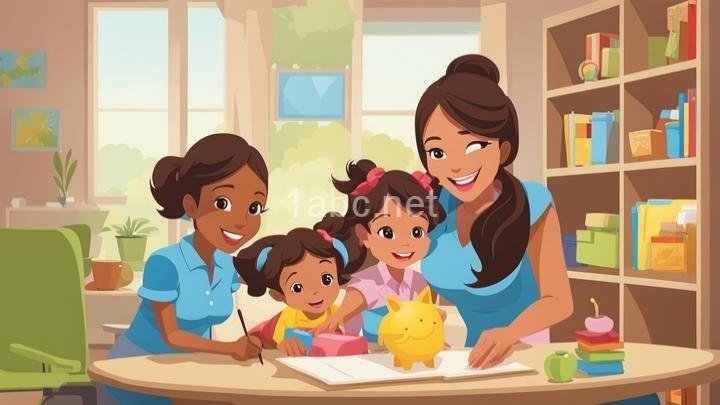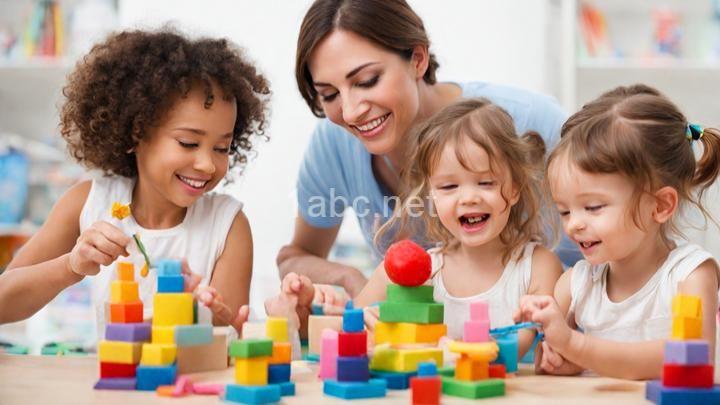The Role of Play in Developing Emotional Intelligence

Exploring the Power of Play: How it Helps Develop Emotional Intelligence
Introduction:
Emotional intelligence, the ability to perceive, understand, manage, and express emotions effectively, plays a crucial role in personal growth and interpersonal success. But did you know that play can be the secret ingredient in developing emotional intelligence? Yes, you read that right! Play isn't just a frivolous activity; it can be a powerful tool in nurturing emotional intelligence in both children and adults. Imagine a world where we can tap into our emotions with ease, regulate them effectively, empathize deeply, and build strong social connections. Sounds amazing, doesn't it? In this blog post, we'll delve into the fascinating world of emotional intelligence and explore the incredible benefits of play in its development.
I. Understanding Emotional Intelligence:
To lay the foundation, let's begin by understanding what emotional intelligence is and why it is so important. Emotional intelligence comprises four key components: self-awareness, self-regulation, empathy, and social skills. Self-awareness involves recognizing and understanding our own emotions, strengths, limitations, and values. Self-regulation is the ability to manage and control our emotions, impulses, and behaviors in various situations. Empathy enables us to understand and share the emotions of others, promoting compassion and connection. Finally, social skills encompass the ability to communicate, collaborate, resolve conflicts, and build meaningful relationships. Developing emotional intelligence is crucial because it enhances our mental well-being, supports healthy relationships, and boosts overall success in life.
II. The Benefits of Play in Emotional Development:
Now that we have a solid understanding of emotional intelligence, let's dive into how play can foster its development. Play is a natural and instinctive activity for humans, especially during childhood. It not only brings joy and fun but also serves as a powerful catalyst for emotional growth. Here are some of the incredible benefits of play in emotional development:
1. Promotes Self-Awareness:
Play encourages exploration, self-expression, and experimentation. Through play, children and even adults can discover their interests, strengths, and preferences. Whether it's pretending to be a superhero, building with blocks, or engaging in artistic endeavors, play provides a safe space for self-discovery and self-reflection. By engaging in different play activities, individuals can become more aware of their emotions, triggers, and personal boundaries.
2. Develops Emotional Regulation:
Imaginative play, such as pretending to be different characters or engaging in make-believe scenarios, allows children to explore and express a wide range of emotions. By navigating these pretend situations, they learn to identify and regulate their emotions effectively. For example, pretending to be a doctor and comforting a teddy bear patient can teach children empathy and help them understand how to manage their own fear or distress.
3. Nurtures Empathy:
Cooperative play, such as playing board games or engaging in interactive group activities, can foster empathy by promoting perspective-taking and understanding others' feelings. When children work together to solve problems or take turns, they learn to consider the needs and emotions of others. This cooperative play lays the foundation for developing empathy, compassion, and the ability to build meaningful connections with others.
4. Develops Social Skills:
Play provides ample opportunities for children to practice and refine their social skills. Whether it's negotiating roles in a pretend play scenario, resolving conflicts during a game, or simply engaging in conversations, play facilitates the development of essential social skills. Through play, children learn how to communicate effectively, collaborate with others, and navigate social dynamics. These skills are not only essential in childhood but also carry over into adulthood, influencing success in personal and professional relationships.
III. Playful Activities that Foster Emotional Intelligence:
Now that we understand the benefits of play in emotional development, let's explore some practical and age-appropriate activities that can enhance emotional intelligence:
1. Age-Appropriate Activities:
For toddlers, activities like peek-a-boo, sensory play, and playing with simple toys can promote self-awareness and emotional regulation. Preschoolers can engage in activities like storytelling, role-playing, and drawing to express their emotions and develop empathy. School-age children can benefit from cooperative games, team sports, and group projects that enhance social skills and empathy.
2. Self-Awareness Activities:
Encourage journaling or mindfulness activities to help individuals become more self-aware. Journaling allows individuals to reflect on their emotions, experiences, and thoughts. Mindfulness activities, such as deep breathing exercises or guided visualizations, can help individuals tune in to their emotions and create a sense of calm and clarity.
3. Imaginative Play:
Encourage individuals to engage in imaginative play, where they can explore different emotions and scenarios. Role-playing emotions, such as pretending to be happy, sad, or angry, allows individuals to understand and express a wide range of emotions in a safe and creative environment.
4. Cooperative Games:
Promote cooperative games or group activities that require collaboration, problem-solving, and empathy. Games like charades, cooperative board games, or building projects can foster teamwork, communication, and social skills.
IV. Integrating Play into Everyday Life:
To fully reap the benefits of play in developing emotional intelligence, it's crucial to create a play-friendly environment in everyday life. Here are some practical tips for parents, teachers, or caregivers:
1. Schedule Playtime:
Set aside dedicated time for play each day, whether it's with your children, students, or colleagues. Make play a priority and integrate it into daily routines, just like any other essential activity.
Be Present and Engaged:
When engaging in play, be fully present and actively participate. Show genuine interest and enthusiasm, as your involvement can inspire and model positive emotional behaviors.
3. Create a Playful Environment:
Designate a play area that is inviting, safe, and filled with age-appropriate toys, games, and materials. This space should encourage exploration, creativity, and social interaction.
4. Provide Opportunities for Choice:
Allow individuals to choose their preferred play activities, as this promotes autonomy and self-expression. Offer a variety of options and support their decision-making process.
Conclusion:
In conclusion, play is a powerful tool in nurturing emotional intelligence. By engaging in various forms of play, individuals can develop self-awareness, emotional regulation, empathy, and social skills. Incorporating playful activities into everyday life, whether for children or adults, can have long-lasting benefits for emotional well-being and personal growth. So, let's embrace a playful mindset and prioritize opportunities for play in our lives. Remember, play isn't just for kids; it's for everyone on the journey of emotional intelligence and personal fulfillment. Let's play our way to a brighter and emotionally intelligent future!
FREQUENTLY ASKED QUESTIONS
What is emotional intelligence and why is it important?
Emotional intelligence refers to the ability to understand and manage our own emotions, as well as recognize and empathize with the emotions of others. It involves being aware of our emotions, controlling them effectively, and using them to navigate social interactions and relationships. Emotional intelligence is important because it plays a crucial role in our personal and professional lives. It helps us build strong and meaningful relationships, communicate effectively, and make sound decisions. People with high emotional intelligence are generally better at resolving conflicts, managing stress, and adapting to change. They also tend to have better mental health and overall well-being.
In the workplace, emotional intelligence is highly valued as it contributes to strong leadership, teamwork, and collaboration. It enables individuals to understand and respond to the needs of their colleagues, customers, and clients, fostering positive working environments and enhancing productivity. Additionally, emotional intelligence is essential for effective problem-solving, decision-making, and managing workplace dynamics.
Overall, emotional intelligence plays a vital role in our personal and professional lives, influencing our relationships, well-being, and success. By developing and nurturing our emotional intelligence, we can improve our self-awareness, empathy, and social skills, leading to a more fulfilling and rewarding life.
How does play contribute to the development of emotional intelligence?
Play plays a crucial role in the development of emotional intelligence. When children engage in play, they have the opportunity to explore their emotions, express themselves, and navigate social interactions. Through play, children learn to recognize and understand their own emotions, as well as the emotions of others.During play, children often encounter various scenarios that require them to problem-solve and make decisions. This helps them develop skills such as empathy, self-awareness, and self-regulation. For example, when playing with others, children may experience conflicts or disagreements. Through these experiences, they learn to understand and manage their own emotions, as well as consider the feelings of others.
Additionally, play provides a safe space for children to experiment with different roles and perspectives. By pretending to be different characters or engaging in imaginative play, children can put themselves in someone else's shoes and gain a deeper understanding of different emotions and perspectives. This helps foster empathy and the ability to understand and relate to others' emotions.
Furthermore, play allows children to practice social skills and develop relationships. By interacting with peers in play settings, children learn how to communicate effectively, cooperate, negotiate, and resolve conflicts. These social interactions provide opportunities for children to understand and respond to the emotions of others, further enhancing their emotional intelligence.
In summary, play contributes to the development of emotional intelligence by allowing children to explore and express their own emotions, understand the emotions of others, develop empathy, practice self-regulation, and enhance their social skills. It provides a valuable platform for emotional growth and the acquisition of important life skills.
What types of play are beneficial for developing emotional intelligence?
There are several types of play that can be beneficial for developing emotional intelligence. Play is a natural and effective way for children to explore their emotions, develop empathy, and learn how to regulate their emotions. Here are a few types of play that can support the development of emotional intelligence:
-
Pretend Play: Pretend play allows children to step into different roles and explore different emotions. They can act out scenarios and practice understanding and expressing different feelings. For example, playing "house" or "doctor" can help children understand empathy and the emotions of others.
-
Cooperative Play: Cooperative play involves children working together towards a common goal. This type of play encourages children to communicate, compromise, and problem-solve, which are important skills for emotional intelligence. Activities such as building a fort or completing a puzzle together can promote teamwork and emotional understanding.
-
Outdoor Play: Playing outside provides children with opportunities to experience and regulate a wide range of emotions. Whether it's climbing a tree, playing tag, or exploring nature, outdoor play allows children to engage in physical activity, manage their emotions, and develop resilience.
-
Artistic Play: Engaging in artistic activities such as drawing, painting, or crafting can help children express their emotions and develop self-awareness. Artistic play allows children to explore their creativity and communicate their feelings visually, which can enhance their emotional intelligence.
-
Social Play: Social play involves interacting with peers and learning how to navigate social situations. Through social play, children learn how to take turns, share, negotiate, and empathize with others. Activities like board games, role-playing, or group projects can foster social skills and emotional understanding.
Remember, the key to promoting emotional intelligence through play is to provide a safe and supportive environment where children can freely express and explore their emotions. Encourage open communication, validate their feelings, and provide guidance when needed.
Can play be used to address specific emotional challenges?
Absolutely! Play can be a powerful tool for addressing specific emotional challenges. When we engage in play, whether it's through games, creative activities, or imaginative play, it allows us to express and explore our emotions in a safe and non-threatening way. For example, playing with dolls or action figures can help children act out different scenarios and explore their feelings of anger, sadness, or fear. This can provide them with an opportunity to process and make sense of these emotions.
Additionally, playing board games or team sports can help individuals develop important social and emotional skills, such as communication, cooperation, and resilience. These skills can be invaluable in dealing with challenges and navigating relationships.
Play also offers a release of tension and stress. It allows us to let go of our worries and immerse ourselves in the present moment. This can be particularly helpful when dealing with anxiety or overwhelming emotions.
Overall, play provides a therapeutic outlet for addressing specific emotional challenges. It allows us to connect with our emotions, develop coping strategies, and build resilience in a fun and enjoyable way. So go ahead and embrace the power of play!




